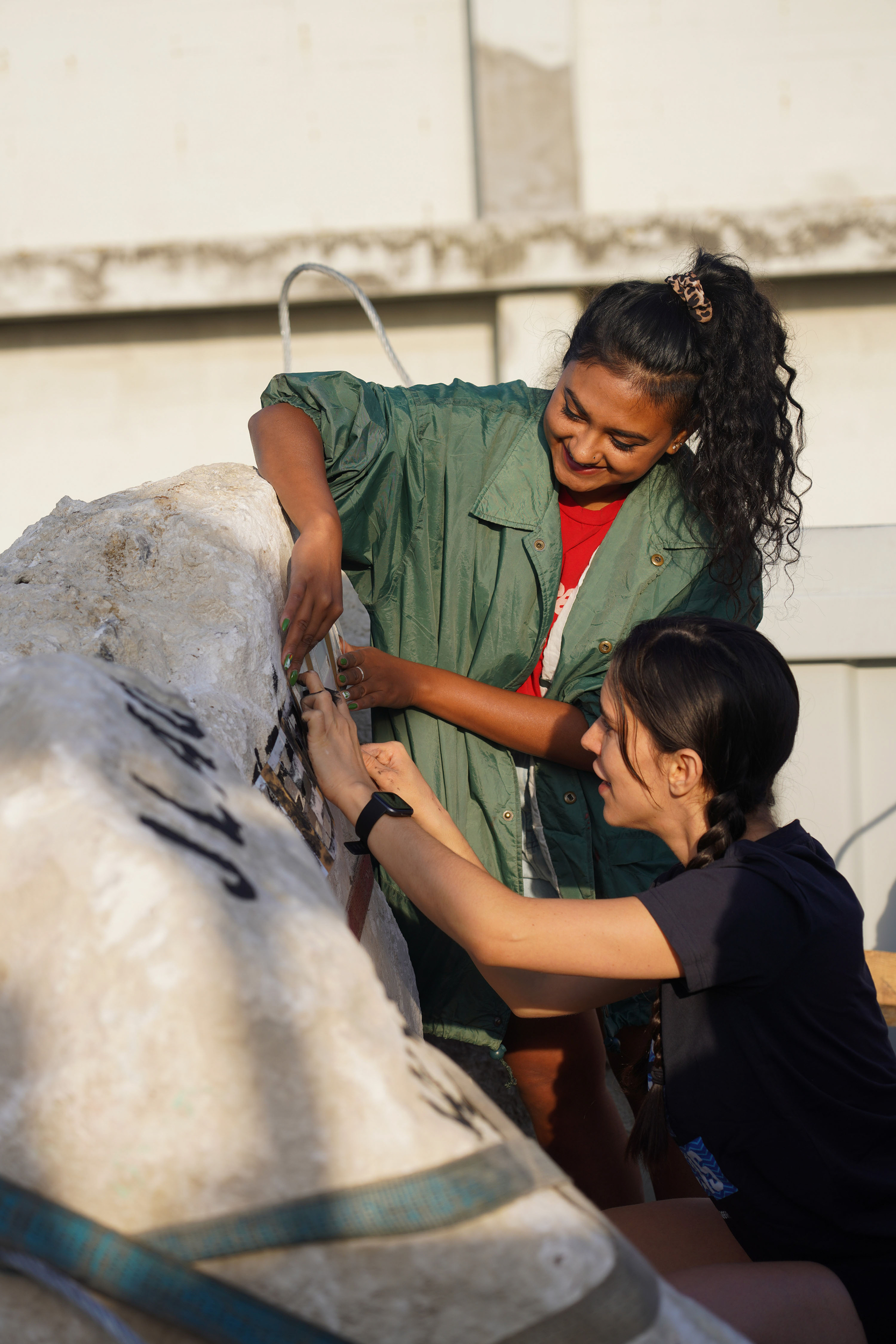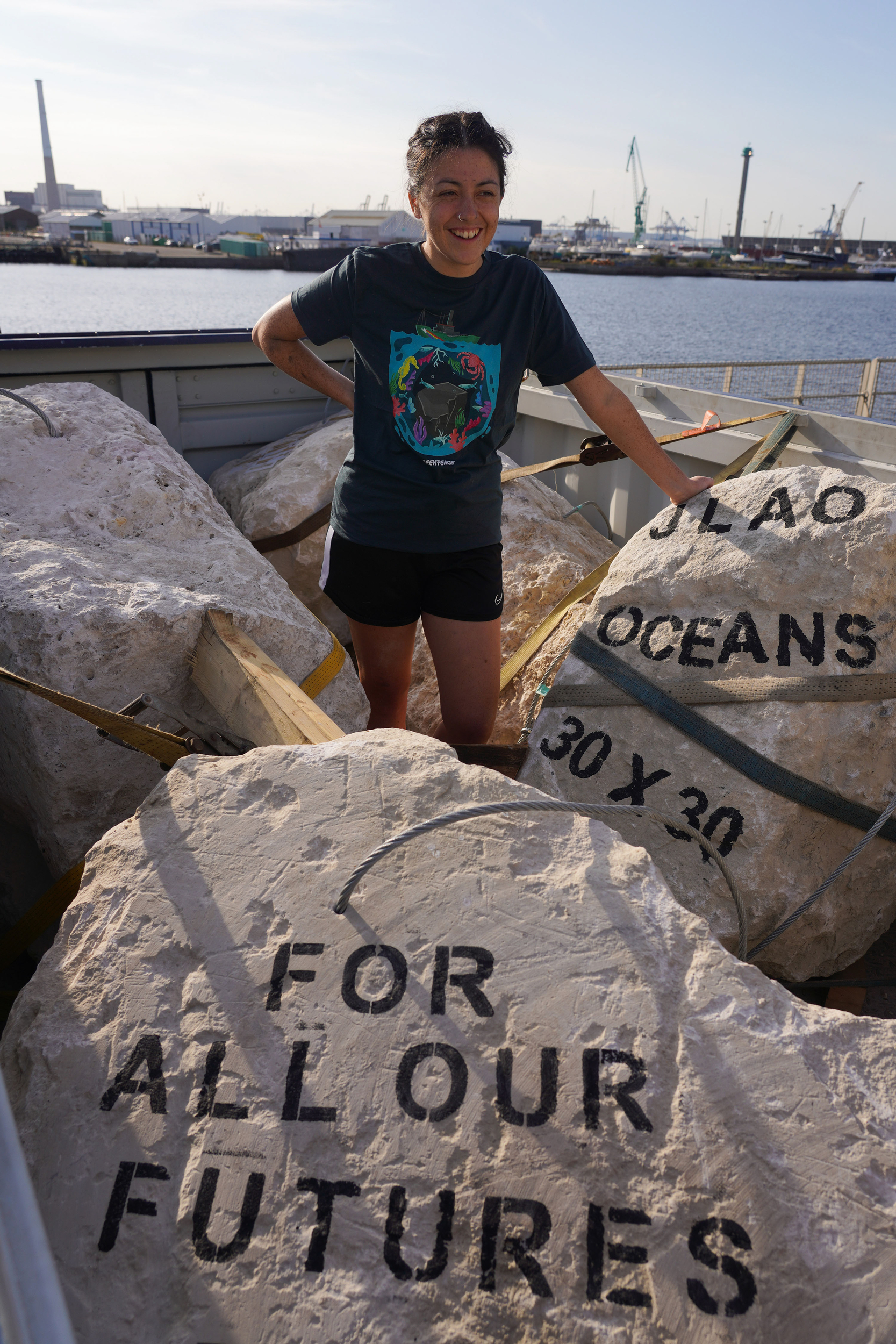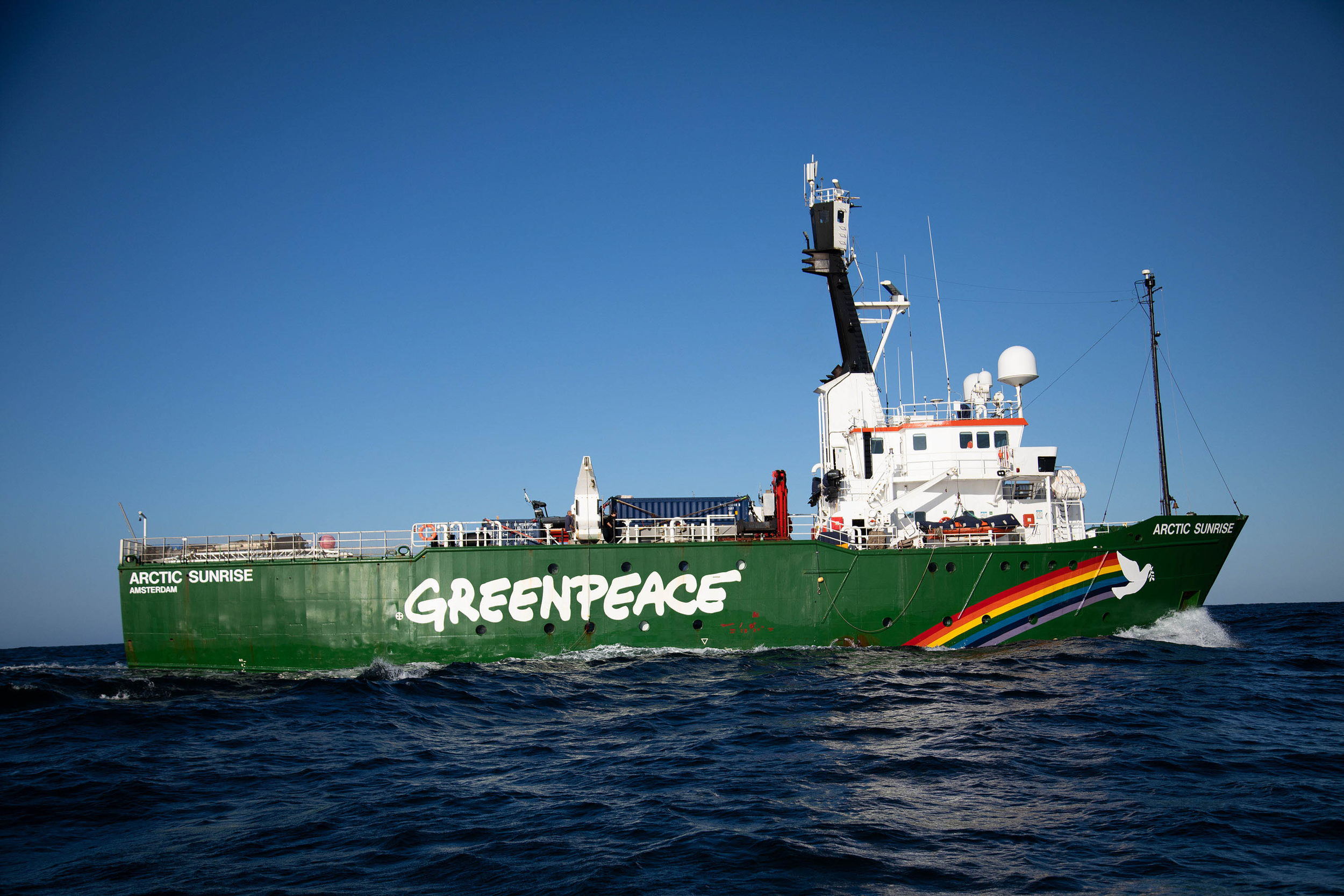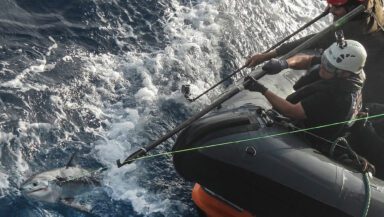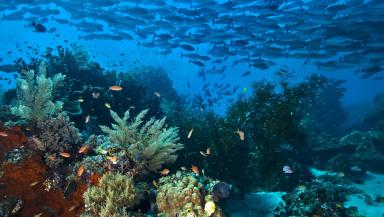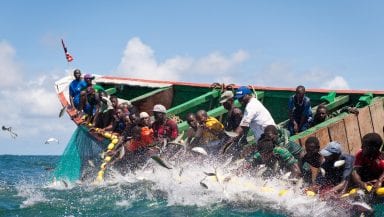Update – Thursday 8 September: the government blocked our plans to place a second set of boulders on the seabed to protect this precious habitat from harmful industrial fishing. The Marine Management Organisation threatened Poole Harbour Commissioners with legal action if they allowed the boulders into port.
We hope they’ll act with the same urgency to stop industrial fishing vessels destroying the seabed, so we can stop doing their job for them. See the press release for more info.
Our blue planet is suffering. Precious marine habitats are home to lots of sealife and store huge amounts of carbon. But industrial fishing, the climate crisis, plastic pollution and more threaten them. Scientists agree: to ensure marine ecosystem survival, we must protect at least 30% of the global oceans by 2030.
Marine Protected Areas (MPA)
Areas that are meant to be managed and protected from environmentally-damaging activities to conserve marine life, habitats and ecosystems.
Different MPAs form the UK's network. Offshore MPAs are partly or entirely in waters more than 12 miles from land. Inshore MPAs are in waters less than 12 miles from land.
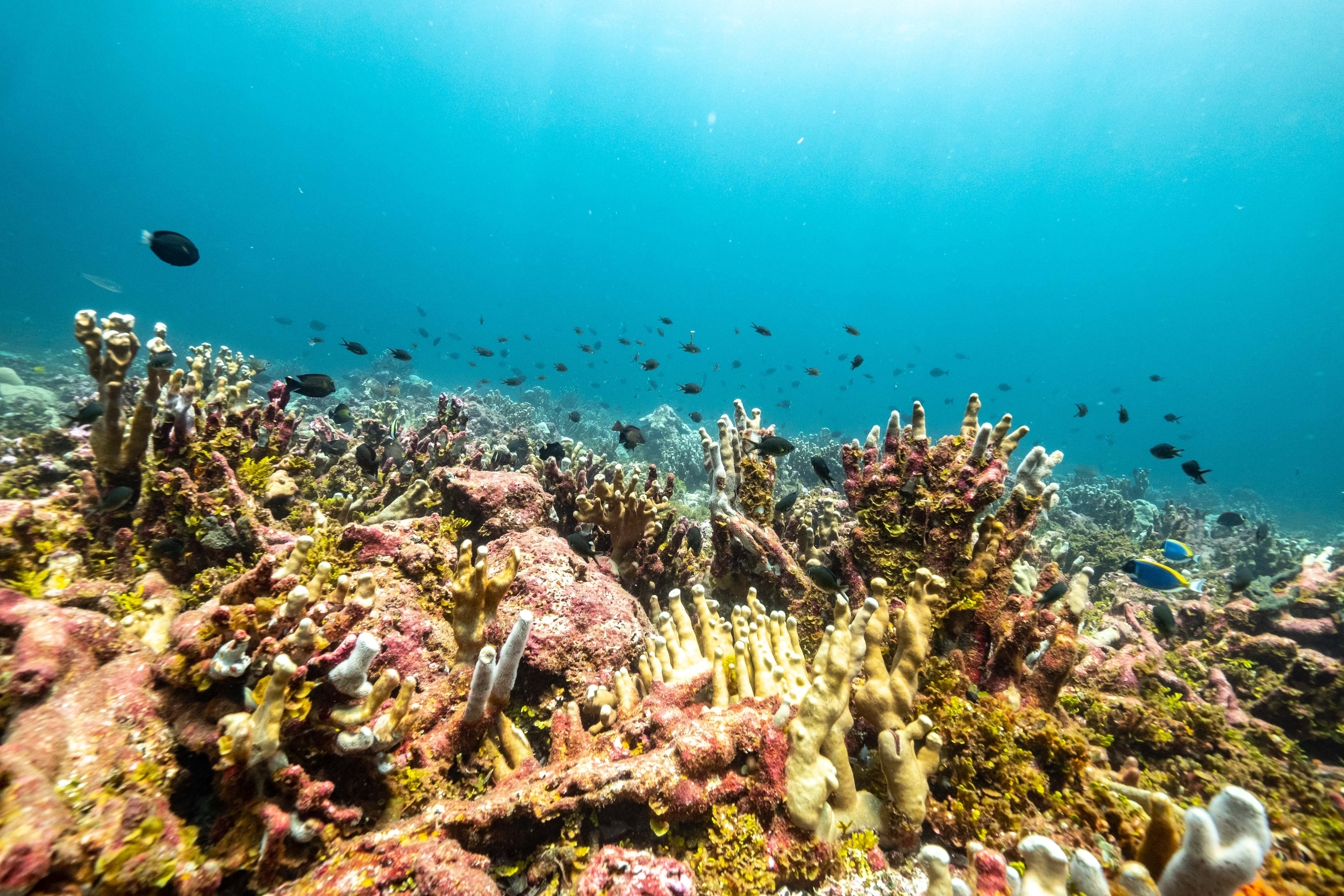
Bottom trawlers
Fishing vessels that use heavy, bottom-towed fishing gear. This is pulled or pushed along the seafloor with heavy metal dredge claws, metal beams and other weighted nets. It ploughs the seabed and risks releasing stored carbon.
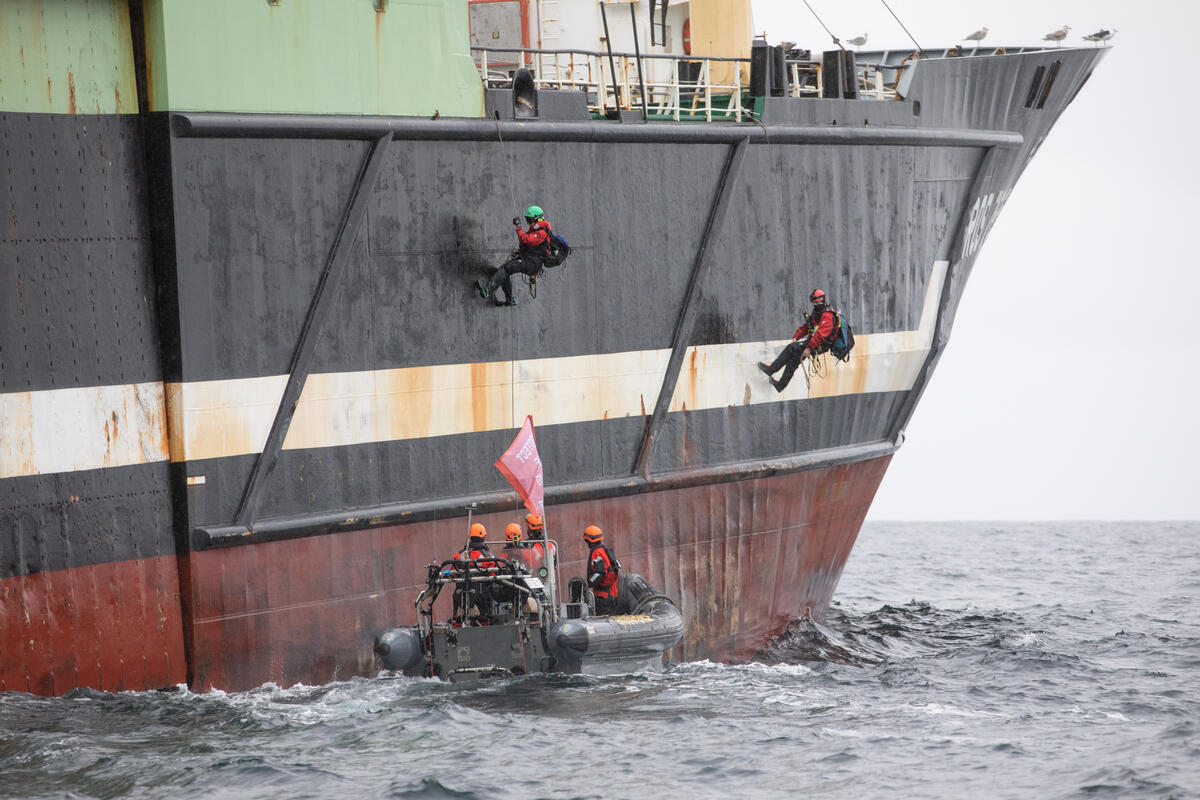
Even though UK oceans have a network of Marine Protected Areas (MPAs), these are largely ‘protected’ in name alone. There’s an industrial fishing frenzy taking place in our seas, which is destroying sealife and the livelihoods of small scale fishermen. That’s why Greenpeace takes action by placing large boulders on the seabed. The protective underwater barriers help stop destructive bottom trawlers from continuing to wreck the ocean.
Yesterday, activists dropped boulders into a section of the South West Deeps (East) MPA – a large, so-called “protected” area nearly 200km off the coast of Cornwall. In the last 18 months alone, industrial fishing boats have spent nearly 19,000 hours fishing around the clock inside this area. Our new boulder barrier will make sure that one of the most heavily fished parts of this Marine Protected Area is off limits to bottom trawling.
This action is a last resort. We would much prefer the government did their job to protect our oceans so that we didn’t have to. However, we’ve submitted petitions with hundreds of thousands of signatures, answered every call for evidence and consultation, had countless meetings with the government, you name it. But our oceans are in crisis and our government is adrift. Here are 5 reasons why we decided to take action in this way.
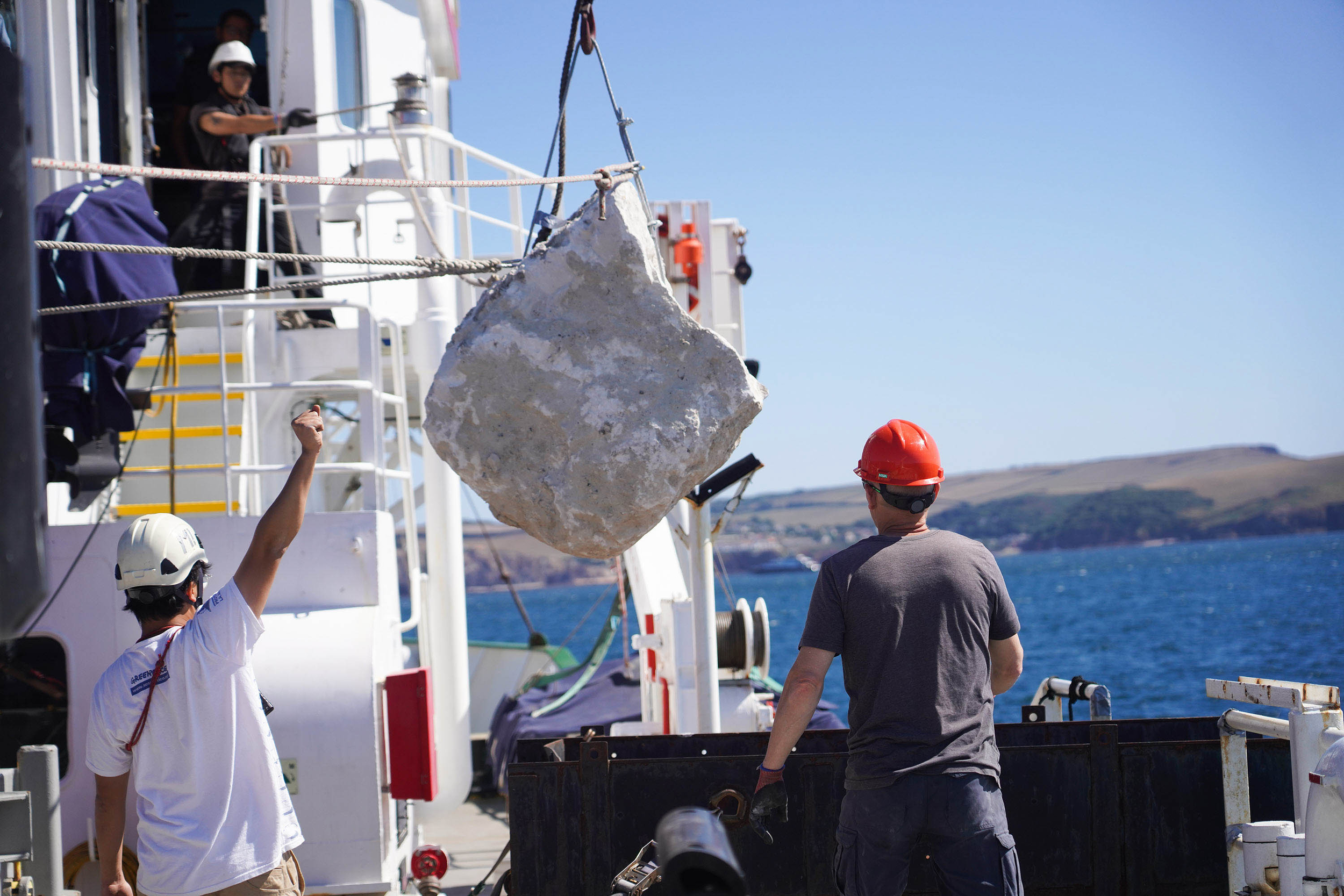
Practicing on the Arctic Sunrise before the boulder drop in the South West Deeps (East) MPA. © Kristian Buus / Greenpeace
1. It works now
Put simply, we build these underwater boulder barriers because they work. Placing these boulders stops bottom trawlers from damaging the area immediately. It makes it impossible for their fishing gear to be dragged along the seabed, so they can’t destroy the delicate marine life that lives there.
We’ve carefully placed our boulders in one of the most heavily fished areas to protect the most vulnerable parts of the South West Deeps. But it’s up to the government to finish the job and ban industrial fishing from all of the UK’s Marine Protected Areas.
2. It creates change
This tried and tested action secures lasting ocean protection. In 2009, Greenpeace placed over 200 boulders on the seabed around two Swedish Marine Protected Areas in Kattegatt, which are home to porpoises and a rare species of shark. Last month, bottom trawling was banned in all of the Kattegatt protected areas – with a total fishing ban in half of them! It’s now one of the strongest protections of any European network of Marine Protected Areas.
We’ve also had success in the UK. Greenpeace dropped boulders in the Dogger Bank MPA in 2020 and the Offshore Brighton MPA in 2021. Earlier this year, thanks to these actions, bottom-towed gear was banned in four of the UK’s 76 offshore MPAs, including the Dogger Bank.
While this was a groundbreaking moment for UK ocean protection, this is a tiny amount of the UK’s total MPAs. And a drop in the ocean compared to how much protection our marine life needs.
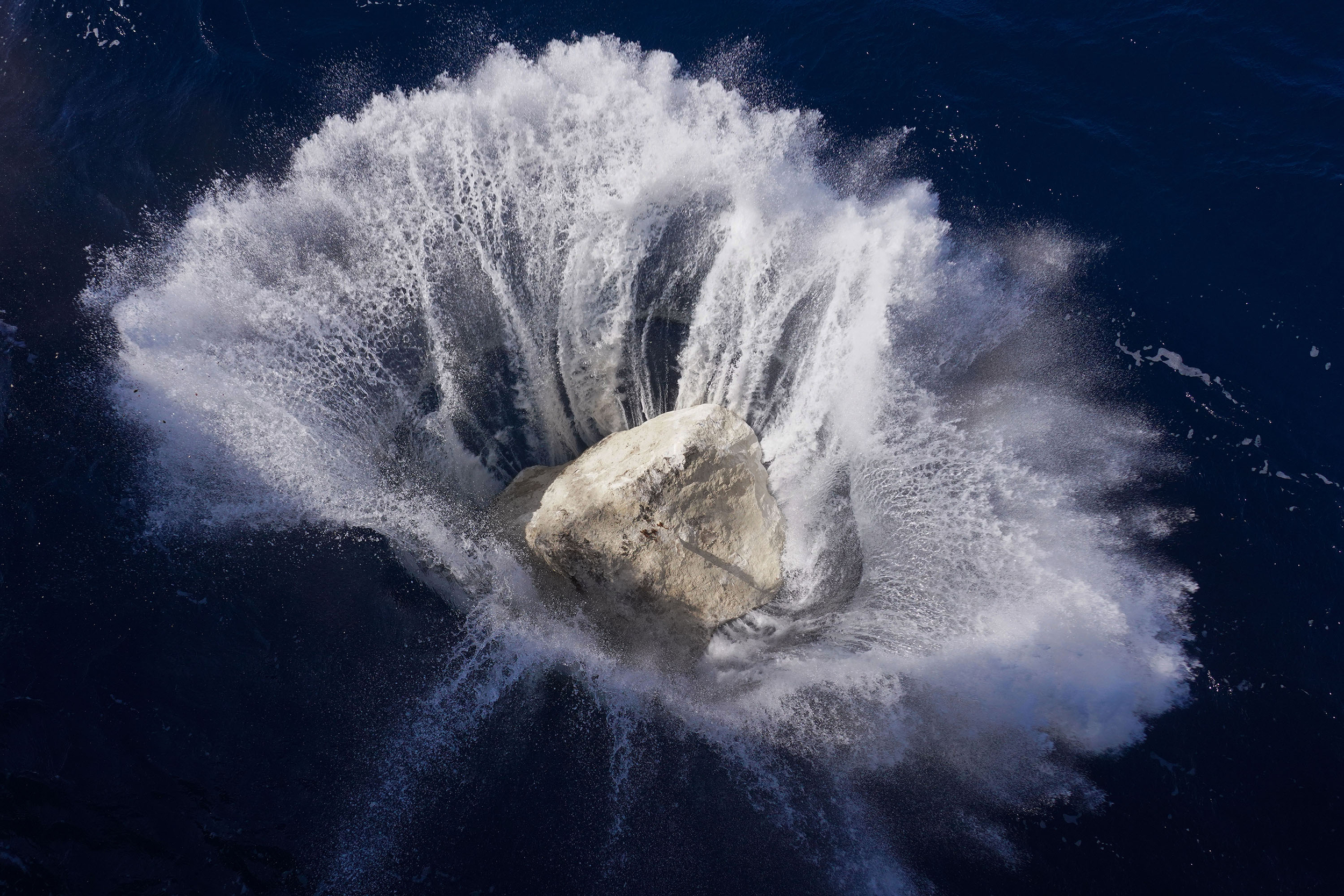
One of the 18 boulders placed in the South West Deeps (East) MPA to form a protective boulder barrier. © Kristian Buus / Greenpeace
3. It’s popular across the political divide
Greenpeace actions aimed at holding the government to account don’t always win the backing of politicians! However, Conservatives – such as Henry Smith MP, Sir Peter Bottomley MP and Theresa May’s former environment advisor, Lord Randall – supported our boulder barrier alongside the Green Party’s Caroline Lucas MP. Labour’s Barry Gardiner MP and Clive Lewis MP added their names to our boulders at Dogger Bank.
Their names were stencilled onto boulders, which were then dropped into the ocean to help form the protective boulder barrier.

